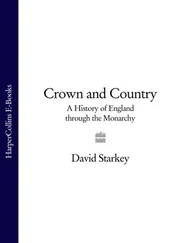Thomas Babington Macaulay - The History of England, from the Accession of James II - Volume 2
Здесь есть возможность читать онлайн «Thomas Babington Macaulay - The History of England, from the Accession of James II - Volume 2» — ознакомительный отрывок электронной книги совершенно бесплатно, а после прочтения отрывка купить полную версию. В некоторых случаях можно слушать аудио, скачать через торрент в формате fb2 и присутствует краткое содержание. Жанр: unrecognised, на английском языке. Описание произведения, (предисловие) а так же отзывы посетителей доступны на портале библиотеки ЛибКат.
- Название:The History of England, from the Accession of James II - Volume 2
- Автор:
- Жанр:
- Год:неизвестен
- ISBN:нет данных
- Рейтинг книги:4 / 5. Голосов: 1
-
Избранное:Добавить в избранное
- Отзывы:
-
Ваша оценка:
- 80
- 1
- 2
- 3
- 4
- 5
The History of England, from the Accession of James II - Volume 2: краткое содержание, описание и аннотация
Предлагаем к чтению аннотацию, описание, краткое содержание или предисловие (зависит от того, что написал сам автор книги «The History of England, from the Accession of James II - Volume 2»). Если вы не нашли необходимую информацию о книге — напишите в комментариях, мы постараемся отыскать её.
libreka classics – These are classics of literary history, reissued and made available to a wide audience.
Immerse yourself in well-known and popular titles!
The History of England, from the Accession of James II - Volume 2 — читать онлайн ознакомительный отрывок
Ниже представлен текст книги, разбитый по страницам. Система сохранения места последней прочитанной страницы, позволяет с удобством читать онлайн бесплатно книгу «The History of England, from the Accession of James II - Volume 2», без необходимости каждый раз заново искать на чём Вы остановились. Поставьте закладку, и сможете в любой момент перейти на страницу, на которой закончили чтение.
Интервал:
Закладка:
The two events which proved to the public that Sunderland and Sunderland's party were victorious were the prorogation of the Parliament from February to May, and the departure of Castelmaine for Rome with the appointments of an Ambassador of the highest rank. 72
Hitherto all the business of the English government at the papal court had been transacted by John Caryl. This gentleman was known to his contemporaries as a man of fortune and fashion, and as the author of two successful plays, a tragedy in rhyme which had been made popular by the action and recitation of Betterton, and a comedy which owes all its value to scenes borrowed from Moliere. These pieces have long been forgotten; but what Caryl could not do for himself has been done for him by a more powerful genius. Half a line in the Rape of the Lock has made his name immortal.
Caryl, who was, like all the other respectable Roman Catholics, an enemy to violent courses, had acquitted himself of his delicate errand at Rome with good sense and good feeling. The business confided to him was well done; but he assumed no public character, and carefully avoided all display. His mission, therefore, put the government to scarcely any charge, and excited scarcely any murmurs. His place was now most unwisely supplied by a costly and ostentatious embassy, offensive in the highest degree to the people of England, and by no means welcome to the court of Rome. Castelmaine had it in charge to demand a Cardinal's hat for his confederate Petre.
About the same time the King began to show, in an unequivocal manner, the feeling which he really entertained towards the banished Huguenots. While he had still hoped to cajole his Parliament into submission and to become the head of an European coalition against France, he had affected to blame the revocation of the edict of Nantes, and to pity the unhappy men whom persecution had driven from their country. He had caused it to be announced that, at every church in the kingdom, a collection would be made under his sanction for their benefit. A proclamation on this subject had been drawn up in terms which might have wounded the pride of a sovereign less sensitive and vainglorious than Lewis. But all was now changed. The principles of the treaty of Dover were again the principles of the foreign policy of England. Ample apologies were therefore made for the discourtesy with which the English government had acted towards France in showing favour to exiled Frenchmen. The proclamation which had displeased Lewis was recalled. 73 The Huguenot ministers were admonished to speak with reverence of their oppressor in their public discourses, as they would answer it at their peril. James not only ceased to express commiseration for the sufferers, but declared that he believed them to harbour the worst designs, and owned that he had been guilty of an error in countenancing them. One of the most eminent of the refugees, John Claude, had published on the Continent a small volume in which he described with great force the sufferings of his brethren. Barillon demanded that some opprobrious mark should be put on his book. James complied, and in full council declared it to be his pleasure that Claude's libel should be burned by the hangman before the Royal Exchange. Even Jeffreys was startled, and ventured to represent that such a proceeding was without example, that the book was written in a foreign tongue, that it had been printed at a foreign press, that it related entirely to transactions which had taken place in a foreign country, and that no English government had ever animadverted on such works. James would not suffer the question to be discussed. "My resolution," he said, "is taken. It has become the fashion to treat Kings disrespectfully; and they must stand by each other. One King should always take another's part: and I have particular reasons for showing this respect to the King of France." There was silence at the board. The order was forthwith issued; and Claude's pamphlet was committed to the flames, not without the deep murmurs of many who had always been reputed steady loyalists. 74
The promised collection was long put off under various pretexts. The King would gladly have broken his word; but it was pledged so solemnly that he could not for very shame retract. 75 Nothing, however, which could cool the zeal of congregations was omitted. It had been expected that, according to the practice usual on such occasions, the people would be exhorted to liberality from the pulpits. But James was determined not to tolerate declamations against his religion and his ally. The Archbishop of Canterbury was therefore commanded to inform the clergy that they must merely read the brief, and must not presume to preach on the sufferings of the French Protestants. 76 Nevertheless the contributions were so large that, after all deductions, the sum of forty thousand pounds was paid into the Chamber of London. Perhaps none of the munificent subscriptions of our own age has borne so great a proportion to the means of the nation. 77
The King was bitterly mortified by the large amount of the collection which had been made in obedience to his own call. He knew, he said, what all this liberality meant. It was mere Whiggish spite to himself and his religion. 78 He had already resolved that the money should be of no use to those whom the donors wished to benefit. He had been, during some weeks, in close communication with the French embassy on this subject, and had, with the approbation of the court of Versailles, determined on a course which it is not very easy to reconcile with those principles of toleration to which he afterwards pretended to be attached. The refugees were zealous for the Calvinistic discipline and worship. James therefore gave orders that none should receive a crust of bread or a basket of coals who did not first take the sacrament according to the Anglican ritual. 79 It is strange that this inhospitable rule should have been devised by a prince who affected to consider the Test Act as an outrage on the rights of conscience: for, however unjustifiable it may be to establish a sacramental test for the purpose of ascertaining whether men are fit for civil and military office, it is surely much more unjustifiable to establish a sacramental test for the purpose of ascertaining whether, in their extreme distress, they are fit objects of charity. Nor had James the plea which may be urged in extenuation of the guilt of almost all other persecutors: for the religion which he commanded the refugees to profess, on pain of being left to starve, was not his own religion. His conduct towards them was therefore less excusable than that of Lewis: for Lewis oppressed them in the hope of bringing them over from a damnable heresy to the true Church: James oppressed them only for the purpose of forcing them to apostatize from one damnable heresy to another.
Several Commissioners, of whom the Chancellor was one, had been appointed to dispense the public alms. When they met for the first time, Jeffreys announced the royal pleasure. The refugees, he said, were too generally enemies of monarchy and episcopacy. If they wished for relief, they must become members of the Church of England, and must take the sacrament from the hands of his chaplain. Many exiles, who had come full of gratitude and hope to apply for succour, heard their sentence, and went brokenhearted away. 80
May was now approaching; and that month had been fixed for the meeting of the Houses: but they were again prorogued to November. 81 It was not strange that the King did not wish to meet them: for he had determined to adopt a policy which he knew to be, in the highest degree, odious to them. From his predecessors he had inherited two prerogatives, of which the limits had never been defined with strict accuracy, and which, if exerted without any limit, would of themselves have sufficed to overturn the whole polity of the State and of the Church. These were the dispensing power and the ecclesiastical supremacy. By means of the dispensing power the King purposed to admit Roman Catholics, not merely to civil and military, but to spiritual, offices. By means of the ecclesiastical supremacy he hoped to make the Anglican clergy his instruments for the destruction of their own religion.
Читать дальшеИнтервал:
Закладка:
Похожие книги на «The History of England, from the Accession of James II - Volume 2»
Представляем Вашему вниманию похожие книги на «The History of England, from the Accession of James II - Volume 2» списком для выбора. Мы отобрали схожую по названию и смыслу литературу в надежде предоставить читателям больше вариантов отыскать новые, интересные, ещё непрочитанные произведения.
Обсуждение, отзывы о книге «The History of England, from the Accession of James II - Volume 2» и просто собственные мнения читателей. Оставьте ваши комментарии, напишите, что Вы думаете о произведении, его смысле или главных героях. Укажите что конкретно понравилось, а что нет, и почему Вы так считаете.












